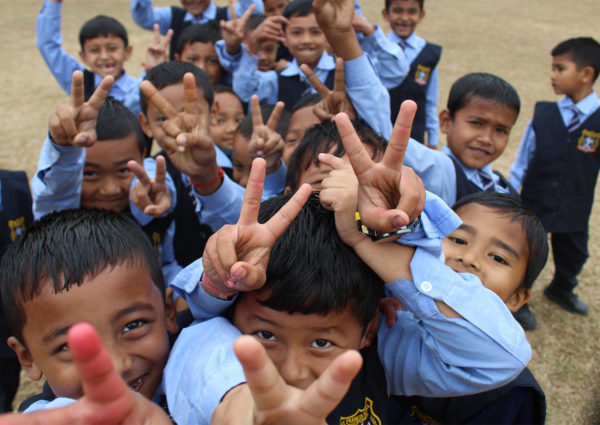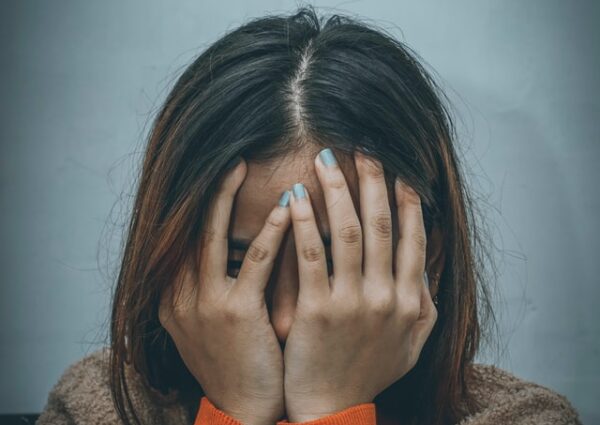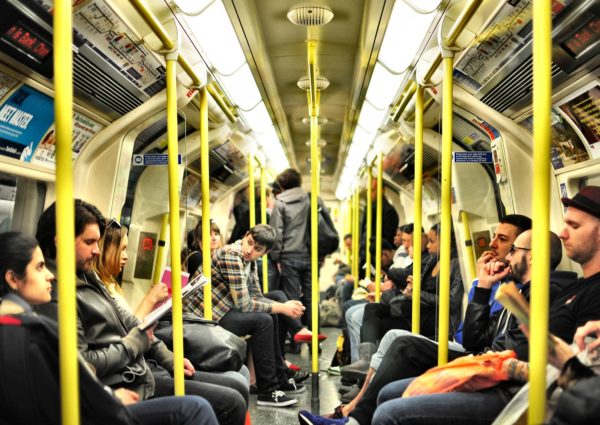India chose democracy out of all the existing forms of governments. If it wasn’t for our true nationalist leaders who spearheaded the battle against colonialism, India would have adopted an even more undesirable form of governance such as autocracy, dictatorship, monarchy, plutarchy or others. The Cassandra’s of the pre-independence era had predicted that democracy would fail and dictatorship would be a wiser choice. But this great nation has proved all such predictions to be wrong by adopting democracy and still sustaining it.
Democracy meant the form of government by the people, of the people and for the people. However, increasing dissent, rising communalism, religious intolerance, sectarian policies and majoritarianism are in sharp contrast with the basic tenets of democracy. A democracy, where all the members of the society must be equal.
Since its inception in Athens (Greece), democracy is neither dead nor alive. In Schrödinger’s thought experiment the hypothetical cat is considered both alive and dead as a result of its fate being linked to a random subatomic event that may or may not occur. Just like the Schrodinger’s cat its state would be revealed only when the box is opened. The efficacy, life and the state of democracy to be vindicated has always been vested with the people and the people alone. The constitution has granted and guaranteed its people the sovereign power of universal adult suffrage which symbolizes equal right to vote. This in turn means equality regardless of caste, creed, religion or any other division. It is ensured by the constitution that no kind of entity can change or take away the power from them.
So why did India choose democracy? We need to look into its history before assessing its current statecraft. The reasons for choosing democracy can be discerned from its past, A few evident ones were divide-and-rule policies, the communal riots, the stance of the then colonial government in granting right to vote for all, its reluctance to protect the fundamental rights. All these had a great deal of impact on India’s political transformation into a democracy. In fact, it had become evident that only a democratic form of government can satisfy the interests of diverse groups which co-existed in this diverse nation.
Indians were subdued in all spheres under the colonial regime. Imperial English “Democracy” had colonized India and executed its tyranny for more than a century. This white supremacy as per history comprised of economic drain, bloody riots, and widespread violence. All these were attributed majorly due to lack of a democratic system. The power vested in single entities like viceroys and governor generals, who in turn gave minimal powers to their ministers had a big impact in policy making. Vast majority of Indians were left out from elections due to the consideration of suffrage being elitist rights held by Britishers and upper class Indian men. The foreign educated freedom fighters found democracy to be the only viable form of governance that could unite a diverse country like India. In fact, this long anti-colonial struggle made our leaders understand the importance and need of democracy for India. Thus emerged the idea of an independent democratic India which was formally adopted on 26th November 1950. The Constituent Assembly of India embedded the same in the preamble of the constitution.
The constitution has been considered to be the sacred document that represents the free will of the people. Thus, the people have been vested with the real power to elect their representatives who in turn become a part of the government (representative democracy). But the current events in the country and the dwindling rank of India in various indices certainly makes one doubtful about the stature of democracy.
- Corruption Perception Index – 86
- Human Freedom Index – 111
- Economic Freedom Index -121
- Global Hunger Index – 94
- World Press Freedom Index – 142
It is important to derive at a conclusion only after understanding what exactly is happening within this democracy. Thus, it is necessary to open the box and look for ourselves to determine whether democracy is alive or dead. Consequently the state of democracy would be clear and then we can try to carve out a plan to enhance its stature. Let us try to open the box and see the state of our democracy.
SOCIAL DIVISIONS
India is a diverse country, in fact, it is a country of nations. Each state has its own culture, tradition and language. Thus, a state can be thought of as a small nation in itself. India has derived this heterogeneity in the society from the colonial era. However, the sense of one nation one goal has been diminishing due to the disguised divisions (religious superiority, language dominance) being created in the minds of people.
Diversity doesn’t necessarily demand division. However, the contest between political parties introduce divisions by making false manifestos and inclined policy making, ignoring the basic objectives of human development and economic growth. Religion is made the primary topic of election campaigns these days. Interests based on group, caste, corporate, class and ideology have driven the polity to be sectarian rather than egalitarian. These interest groups have been working on the agenda of fragmenting this country for greedy political dividends.
Recent Delhi riots, Karnataka riots and Bengal clashes have been a striking example in this regard. One party supports Hindus another supports Muslims, one party suppresses Dalits while another excludes deserved poor upper caste in policies. These discrepancies not only dilute the spirit of nationhood but also hampers the nation’s growth. Politicians tend to lure voters through religious polarization of minorities which has devastating consequences.
This polarization has indeed raised questions whether India is transforming into a majoritarianism or mobocracy? Mobocracy is where policy making is highly influenced by the majority’s interests. This way of governance is often described as an antithesis to democracy. The failure of government in enforcing, investigating and punishing mob attacks where most of the victims belonged to minority or vulnerable communities offers necessary proof in this regard.
The threads holding the Indian society together seems to be weakening. The conflict between right wing and left wing ideologies threaten India’s progressing democracy. The preamble of the constitution enshrined that the ultimate aim of democracy is to cater to social, economic and political justice. This is in contradiction to the current era of politics and policies.
A better policy making that helps all the marginalized, minority and majority to arrive at a consensus is the need of the hour. As pointed by Ambedkar, “Political democracy cannot last unless there is at the base of it, a social democracy.”
DENIAL OF HUMAN RIGHTS
India’s low rank in the world’s press freedom index throws light on the authoritarian encroachment of media. The right to dissent which grants the right to assemble peacefully and protest without arms is an important fundamental right. It also guarantees the freedom of speech and expression against unfair laws and policies.
Use of brute civil force to suppress dissent and preventive detention cum sedition as a warrant to stifle peaceful dissent is increasing by the day. What’s more is the frequent imprisonment of critics who disapprove of the policies and government officials. The increase in frequency of imposition of curfews, Section 144 and internet shutdowns reveals the government’s intolerance towards popular dissent. Another example is the usage of Civil institutions (ED, CBI etc.) against opposition entities and popular figures who condemn the government’s decisions. No one is spared, even senior advocates who criticize the civic and moral irregularities are being penalized by the apex court under the guise of contempt of court. All these are alarming signs of a crumbling democracy.
India won its freedom by popular protest through associations and unions to express the dissatisfaction among the masses of colonial policies and governance. To take away the right to dissent from Indians is to take away their identity itself.
CORRUPTION
Undoubtedly, corruption is the primary factor that threatens democracy. India’s slipping rank (86 to 80) in the recently released Corruption Perception Index (CPI) a global corruption watchdog’s annual ranking of countries, has made it evident that India hasn’t been able to tackle this evil. The rampant corruption affecting all the sectors in an unrecoverable manner has contributed to the backsliding of democracy. There is no denying the reality that corruption has its abode in every corner of India, however, it is more prevalent in times and places of elections. The hard truth is that zero budget election doesn’t exist in India because our leaders have accustomed and lured people to plenty of freebies as a part of their election campaign. As a consequence every election demands a huge amount of unaccounted money and liquor to be disbursed as inducements. This has become an occasion for the contending parties to outspend each other than outsmart each other in policy making (give reference to the Tamil movie to get complete picture). The concept of free and fair elections in India seems to be a dream, particularly with the increasing affiliations of politicians with bureaucrats and corporate entities.
Election funding is by far the sink for the black/untaxed money. Albeit, the regulations imposed on foreign and anonymous donations to political parties for election expenditures, the lack of substitutes like state funding and tax incentives for corporate donations has further worsened the case. The introduction of electoral bonds by the incumbent government has augmented the anonymity in donations. Until then the anonymity was only for the donations that are under Rs.20000. The policy making is generally expected to be inclined towards the donors to the political parties rather than the common voters which contradicts the notion of democracy as a form of government by the people of the people and for the people.
There is disguised corruption in all quarters of democracy starting from the police to bureaucracy and judiciary. Coercive and voluntary bribery has crippled the efficacy of the democratic institutions further discouraging the deserved ones. The enactment of Foreign Contribution Regulation Act, Prevention of Corruption Act, Lokpal, CBI and Central Vigilance Commission haven’t been able to tackle this evil to the core. The only exception is the RTI Act of 2005. This Act has empowered the common man to enquire about economic, political or social irregularities that can actually bring a great deal of vigilance at the base level. However, corruption has so inseparably mixed with the Indian system that it requires great grit and time for any ideal government to filter it out.
LACK OF GOOD GOVERNANCE AND ACCOUNTABILITY
Good governance and accountability are the fundamental pillars of democracy. People who can bring out good governance are by far rare. The criminalization of Indian democracy is the greatest threat than any form of extremism. The ADR (Association for Democratic Reforms) analysis shows that the candidates facing criminal charges had more chances of winning as compared to those with a clean record. Definitely, this raises the question as to why Indians elect criminal politicians.
Not only the institution but also the ignorant voter allows these felonious individuals to contest for the apex governing and law making bodies like parliament. The duty of the voter is to elect a rightful candidate who can run the state affairs. Added to this is the declining voting percentage which highlights the lack of accountability in the voting population.
The alarming rise in rapes and sexual abuses indicate the loopholes in our legislations that are being used by the convicts to get free. Accountability is a moral aspect, however governance should enforce accountability.
Most of our laws need retrospection and reconditioning. The representatives should frame the laws, the government should implement the laws, and the citizens are required to abide by the laws. Accountability in every sphere is necessary for a country to realize the dream of social, political and economic consolidation by means of democracy. The duty of the government is to make it difficult for the people to do wrong and ensure that its people find it easier to do RIGHT.
DEMOCRACY – DEAD OR ALIVE?
Now that the box is wide open, it is for us to decide whether the Indian democracy is alive or dead. Albeit all the factors majorly suggest the denuding character of India as a democracy, it doesn’t necessarily mean that it is dead.
Democracy is a self-evolving political practice. Democracy has its ways to check on restricting corruption and improving good governance. No matter how many assaults were made at it to destroy its character, it cannot be toppled.
We can criticize it by stating the criminality in elected representatives, but it is true on the other side that the civil institutions have always taken care to put such personnel behind the bars. Anti-incumbency is the greatest punishment that democracy awards on any politician lacking the intent to fulfil the democratic values.
Just like our experimental body, the Schrodinger’s cat, democracy is not hypothetical living being to decide its mortality, moreover democracy is a scale. The effectiveness and future of the democracy scale depends on how well it adapts to the changes happening in the social, economic, political and cultural aspects.
The strict implementation of rule of law and the commanding role of judiciary are sacrosanct. The recent stature of Indian judiciary demands it to adjudicate rather than to mediate. Also, the right to information act should be further strengthened to give people the supreme power to maintain vigilance on all stakeholders.
The vigilance bodies such as Lokpal, ED etc. should be further consolidated to check on any irregularities. The government must be open-eared towards the dissenting masses rather than suppress the cry of their voices. Parliamentary debates and discussions and statistics and surveys should become a prerequisite to make legislations rather than mere majority of votes in parliament.
All the above aspects calls for a detailed evaluation, rational assessment and robust reforms. If these measures are in place, the enshrined ideologies of our ancestors engraved in the preamble of constitution to make India a better place of living will surely be realized. It is obvious that current stature of democracy in India is certainly in a predicament but it is not dead yet and only the people who are vested with the sovereign power can make it better.
Similar Posts
-
Republic Day – Hard Core
Here are few responses from friends, family, and relatives across India: Alright, joke
-
Independence Day: Should We Celebrate or Not? – Hard Core
Independence Day commemorates the day we achieved freedom from British rule. However, a fundamental
-
Everything about the Farm Bills – Harshvardhan
Agriculture has always been the mainstay of its GDP, India is an agrarian economy. Three bills aimin
-
Freedom – Hard Core
hum laye hain toofan se kishti nikal ke, mere desh ko rakhna bacchon sambhal ke… Supposedly,
-
Sri Lankan crisis: A case study for India – Harshvardhan
“Where foreign capital has been sunk in a country, the administration of that country becomes at onc











Does the odium rests on the ordinary Citizen? - Snails and Oaks
[…] on Father Stan Swami’s death anniversary, “Be vigilant. Do a constant audit of the way democratic institutions are being subverted in India. Speak up, even if you will be arrested. Build a truth […]
Democracy and Religion - Snails and Oaks
[…] city. In a way, I am glad to have known and understood the diversity, which is a unique feature to Democratic India. Another important fact of my life was how my father who was an Army personnel choose to live in […]
Silence is violence - Snails and Oaks
[…] The nation is more undemocratic, […]
Ravuri Vinod Kumar
Nice
Bro
Really impressive 👍👍👍